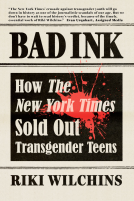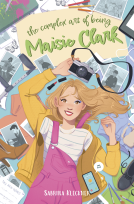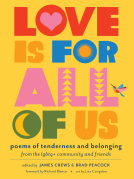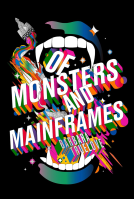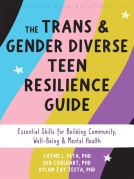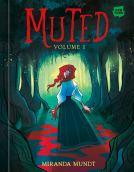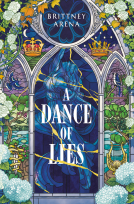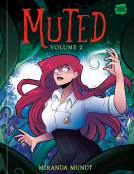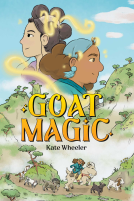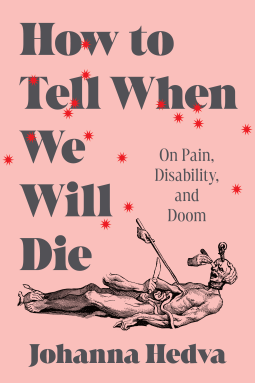
How to Tell When We Will Die : On Pain, Disability, and Doom
by Johanna Hedva
This title was previously available on NetGalley and is now archived.
Send NetGalley books directly to your Kindle or Kindle app
1
To read on a Kindle or Kindle app, please add kindle@netgalley.com as an approved email address to receive files in your Amazon account. Click here for step-by-step instructions.
2
Also find your Kindle email address within your Amazon account, and enter it here.
Pub Date Sep 24 2024 | Archive Date Oct 01 2024
Zando | Hillman Grad Books
Talking about this book? Use #HowtoTellWhenWeWillDieOnPainDisabilityandDoom #NetGalley. More hashtag tips!
Description
The long-awaited essay collection from one of the most influential voices in disability activism that detonates a bomb in our collective understanding of care and illness, showing us that sickness is a fact of life.
In the wake of the 2014 Ferguson riots, and sick with a chronic condition that rendered them housebound, Johanna Hedva turned to the page to ask: How do you throw a brick through the window of a bank if you can’t get out of bed? It was not long before this essay, “Sick Woman Theory”, became a seminal work on disability, because in reframing illness as not just a biological experience but a social one, Hedva argues that under capitalism—a system that limits our worth to the productivity of our bodies—we must reach for the revolutionary act of caring for ourselves and others.
How to Tell When We Will Die expands upon Hedva’s paradigm-shifting perspective in a series of slyly subversive and razor-sharp essays that range from the theoretical to the personal—from Deborah Levy and Susan Sontag to wrestling, kink, mysticism, death, and the color yellow. Drawing from their experiences with America’s byzantine healthcare system, and considering archetypes they call The Psychotic Woman, The Freak, and The Hag in Charge, Hedva offers a bracing indictment of the politics that exploit sickness—relying on and fueling ableism—to the detriment of us all.
With the insight of Anne Boyer’s The Undying and Leslie Jamison’s The Empathy Exams, and the wit of Samantha Irby, Hedva’s debut collection upends our collective understanding of disability. In their radical reimagining of a world where care and pain are symbiotic, and our bodies are allowed to live free and well, Hedva implores us to remember that illness is neither an inconvenience or inevitability, but an enlivening and elemental part of being alive.
Marketing Plan
Goal: Create widespread critical attention for Johanna's groundbreaking definition of what it means to be "ill"
Media Strategy
Most anticipated and seasonal previews: pitch to outlets that publish most anticipated books of the year and summer reading round-ups
Pitch feature, review coverage and interviews to publications spanning a variety of interests: general interest publications; women's & men's interest magazines; pop culture publications; literary publications; progressive outlets, etc.
Pitch interviews to national as well as regional radio stations and sociopolitical, activist, literary and culture podcasts
Target a spectrum of broadcast media from morning and late night talk shows
Pitch to outlets that covered Hevda's "Sick Woman Theory" and novel; outlets that have run essays prior
Ongoing pitching during key moments: National Disability month (March), Chronic Illness Month (July), etc.
Trade & Early Reads Outreach
Dedicated Indie Next campaign to booksellers that focuses on fans of essay collections and provocative, timely non-fiction as well as strong supporters of comp titles, especially those focused on disability activism
Library Reads campaign to librarians interested in similar stories and new critical theory perspectives
Edelweiss eblasts and insert ads to maximize reach on the platform
NetGalley eBlast offering early ARCs to boost early word-of-mouth with reviewers, booksellers, and librarians
Goodreads premium galley giveaway
Academic Marketing
Conference promotion via Ingram with booth space and galleys: Society for Cinema and Media Studies, American Sociological Association, National Women's Studies Association
E-mail campaign targeting 3-5K specific instructors with similar interests
Organic Social and Influencer Outreach
Clear, accessible visuals and copy tailored to key social platforms: Instagram, TikTok, and Threads
Reach pop culture readers and readers interested in "weird queer" spaces with lines from the book re-purposed on bumper stickers/t-shirts/totes
Strong interest in exploring pain via UFC fighters, dominatrix community, and more
Custom mailers highlighting key takeaways from the book sent week prior to on-sale to influential big mouths as well as friends of Hillman Grad and Lena
Events
Focused, accessible book tour including a launch with Lena Waithe, talks and conversations with fellow authors, speakers, critics, theorists with Johanna in dialogue addressing themes in the book,
Cross promotion with activist groups, community organizations, ramp/wheelchair access and ASL/interpretation at every in-person event.
Pitch to social justice organizations with book clubs for salon-style events with their membership.
Available Editions
| EDITION | Hardcover |
| ISBN | 9781638931164 |
| PRICE | $28.00 (USD) |
| PAGES | 384 |
Available on NetGalley
Featured Reviews
In ‘How to Tell When We Will Die’, Johanna Hedva delves into what it means to experience life at the intersection of disability, madness, and a need for community under the ableism and capitalism that rule our world.
Based solely on the small section of the book description I had read, I already had high expectations for this book, and my goodness, were they exceeded. I am in awe of the depth and breadth that Johanna covers within these pages. There is not a single messy, mad, or divisive topic that is shied away from as they explore the reality of living authentically in a body and mind that the world is determined to make small.
I have such respect and gratitude for the unapologetic and raw way in which Hedva shares their personal experiences. As a disabled and neurodivergent person myself, I took a lot from this collection of essays. I am excited to add this book to my badass disability justice toolkit.
I am waiting with eager anticipation for my pre-order to arrive so I can tab and annotate the shit out of this book. I am so grateful to Johanna for sharing these vulnerable and frankly revolutionary essays with us. I will be recommending this book widely for years to come.
Thank you to NetGalley and Zando for the e-ARC. All opinions are my own.
this was an absolutely spectacular collection of essays on what it means to be disabled in the world that we live in. it is frank and sharp and incisive and pulls absolutely no punches, insisting that all readers - abled or disabled - not just face that we're all imbued with our own internalized ableism and why, but it demands that readers unravel this by showing us how ableism is perpetuated, both systemically and individually.
there were so many brilliant takeaways in this from me. one aspect i really connected with was how hedva discussed the fundamental source of ableism - that, if we live long enough, being disabled (and dying) is an eventuality for all of us, and the fear/ignorance/exclusion of people who find themselves much sooner than the rest of us is a product of our own internalized fears of these things. incredible. hedva also speaks a lot on community and community healing. when i was reading, i thought about my own experiences with caregiving, how the person that i caregive for often considers themselves requiring care something that makes them a burden, how those feelings can be erased if we lived in a society that didn't treat providing care as 'going above and beyond' but something that we all participate in to make sure that everyone's needs are met.
for me, there were a lot of stand out essays in this collection, but two that i'll think about often - "letter to a young doctor" and "hedva's disability access rider". the first is hedva's response to a young doctor in medical school that has reached out for advice in dealing with patients. i absolutely love what hedva said here, about how doctors should assume a doctor/patient interaction is collaborative, that patients are experts in their own bodies that doctors could never be, that the hubris of medical professionals leads to misdiagnoses and breakdowns of critical care. the second is simply a glimpse into the requirements hedva asks for when doing events, the importance of those needs being met, the way that the rider is used as a document to not just advocate for themselves but as a way to advocate for others by asking for inclusive bathrooms and asking how care can be provided to event attendees.
ableism is super-pervasive, even amongst disabled people and this collection goes into how it continues to exist in so many different ways, but how, much like the work of dismantling any system of oppression, it requires empathy and communal work. really brilliant book.
This is one of the best things I have read this year. This queer mad crip story was what my soul needed and as a mad queer crip it regularly resonated hard with me. Care is not neat. Disability isn't ordered. I can not explain it better than: You need this. Believe me.
Thank you to NetGalley and the publisher for the eARC!
Johanna Hedva’s How to Tell When We Will Die: On Pain, Disability, and Doom is a masterful collection of essays that delve into the intricacies of living with disability, unraveling the norms that perpetuate ableism and insisting on institutional abolition. Hedva’s work is a stark, introspective journey that challenges readers to confront the often hidden realities of pain, disability, and systemic oppression. Through their incisive and philosophical prose, Hedva invites us to reimagine our understanding of disability, advocating for a more accessible and empathetic world.
One of the most compelling aspects of Hedva’s essays is their deconstruction of the shame and denial surrounding disability. In our society, strength and independence are often upheld as virtues, leaving those who cannot conform to these ideals feeling isolated and marginalized. Hedva brings this shame into the light, emphasizing that disability is a universal human experience. By doing so, they dismantle the harmful notion that needing help is temporary or flawed. This theme is poignantly explored in their essay “Blast Radius of Disability,” where Hedva’s personal experiences with disability become a powerful critique of ableism and capitalism.
Another standout essay is “Get Well Soon,” in which Hedva reimagines the revolutionary potential of disability. They challenge the conventional power dynamics between doctors and patients, advocating for a more collaborative and creative relationship. Hedva’s integration of astrology, witchcraft, and kink into their political analyses adds a unique and expansive dimension to their work, insisting on more diverse conceptions of what is possible for disabled bodies. Their insistence on self-determination for mentally ill individuals is both radical and liberating, pushing against the rigid confines of psychiatric labels.
The essays are not only deeply analytical but also profoundly personal. Hedva’s writing is dense and layered, and their prose is characterized by a stark and provocative tone. Their reflections on their own body and pain, described with a raw and almost visceral honesty, invite readers to engage with the material on an emotional level. Many of Hedva’s insights land like punches to the gut, revealing the everyday realities of living with a body that defies social norms and expectations.
Ultimately, Hedva’s essays are a call to action, urging us to acknowledge and dismantle ableism in all its forms. Their work is a testament to the power of personal narrative intertwined with political analysis, creating a space for reflection, empathy, and ultimately, change. How to Tell When We Will Die is a vital contribution to disability justice literature, challenging readers to rethink their assumptions and join in the fight for an accessible and liberated world.
📖 Recommended For: Readers interested in disability justice and abolition, those who appreciate philosophical and incisive prose, anyone exploring themes of pain, disability, and systemic oppression, fans of Health Communism and Leah Lakshmi Piepzna-Samarasinha.
🔑 Key Themes: Deconstruction of Ableism, Shame and Disability, Revolutionary Potential of Disability, Personal Narrative and Political Analysis, Self-Determination and Abolition.
Content / Trigger Warnings: Death of a parent (severe), Child abuse (moderate), Miscarriage (severe), Alcoholism (minor), Suicide (minor), Forced institutionalization (minor), Mental Illness (severe), Pandemic (moderate), Sexual content (minor), Toxic relationship (minor), Abandonment (minor), Drug abuse (minor), Medical trauma (moderate), Alzheimer’s (moderate).
A really insightful collection of essays that I learnt a lot from. Disability is both fundamental to life yet does not (and should not) define or typify the work a writer produces, and this is certainly true throughout Hedva's essays. Hedva's narration of past relationships was vulnerable and written with a raw honesty and reflection. I loved the references to Audre Lorde, Kier-La Janisse's House of Psychotic Women, Susan Sontag, Deborah Levy and more. I also liked the additions to Sick Woman Theory to engage with the ongoing horrors of the world. An important read for those looking to educate themselves on disability, but also on the codependency of care and pain, the value of empathy when it's truly embodied, and the pedagogical function of illness. In a capitalist society that relies on productive bodies to prevail, Hedva's assertion that we will all one day become disabled forces a valuable recognition of our ultimate need for collaboration and the radical power of acknowledging our dependence on one another within a larger, social body.
 Reviewer 1296250
Reviewer 1296250
This collection was great! It was nice to see these issues discussed so prominently as someone with a chronic ailment!
 Reviewer 1492552
Reviewer 1492552
Johanna Hedva rocked the world with her original essay, and the expansion of those themes in this book work perfectly. Thank you to Netgalley and the publisher for this advanced DRC! The reason I love Hedva's work so much is that it's philosophical and curious in its approach to the occult, spirituality and how those two intertwine with disability. As a fellow astrologer, one of the things we contend and ponder is our belief in fate or free will. Hedva's prose is dense, morbid and beautiful-- making for a challenging read, but one that is relatable to those who are familiar with her work as well as those who are disabled. (I'm the ideal audience, lol.) It almost gets meta, when Hedva talks about the process of writing the book *in* the book.
I love the idea of doom as an inevitability and liberatory in nature. It's a radical concept, but one that I agree with as a death doula. We *will* all become disabled in our lifetime, and we all die. The issue is, how are we going to better equip ourselves with the inevitable if we do not speak about it? Give a voice to the name? The essays (or chapters-- unclear how it's split up or referred to in the Kindle version, which is hard with formatting for these advanced copies) have a good flow to them, and are informative and ask a lot of pertinent and real questions. I can't wait to buy and recommend this book to my friends when it comes out.
Readers who liked this book also liked:
Deborah Coolhart; Jayme L. Peta; Rylan Jay Testa
Self-Help, Teens & YA
